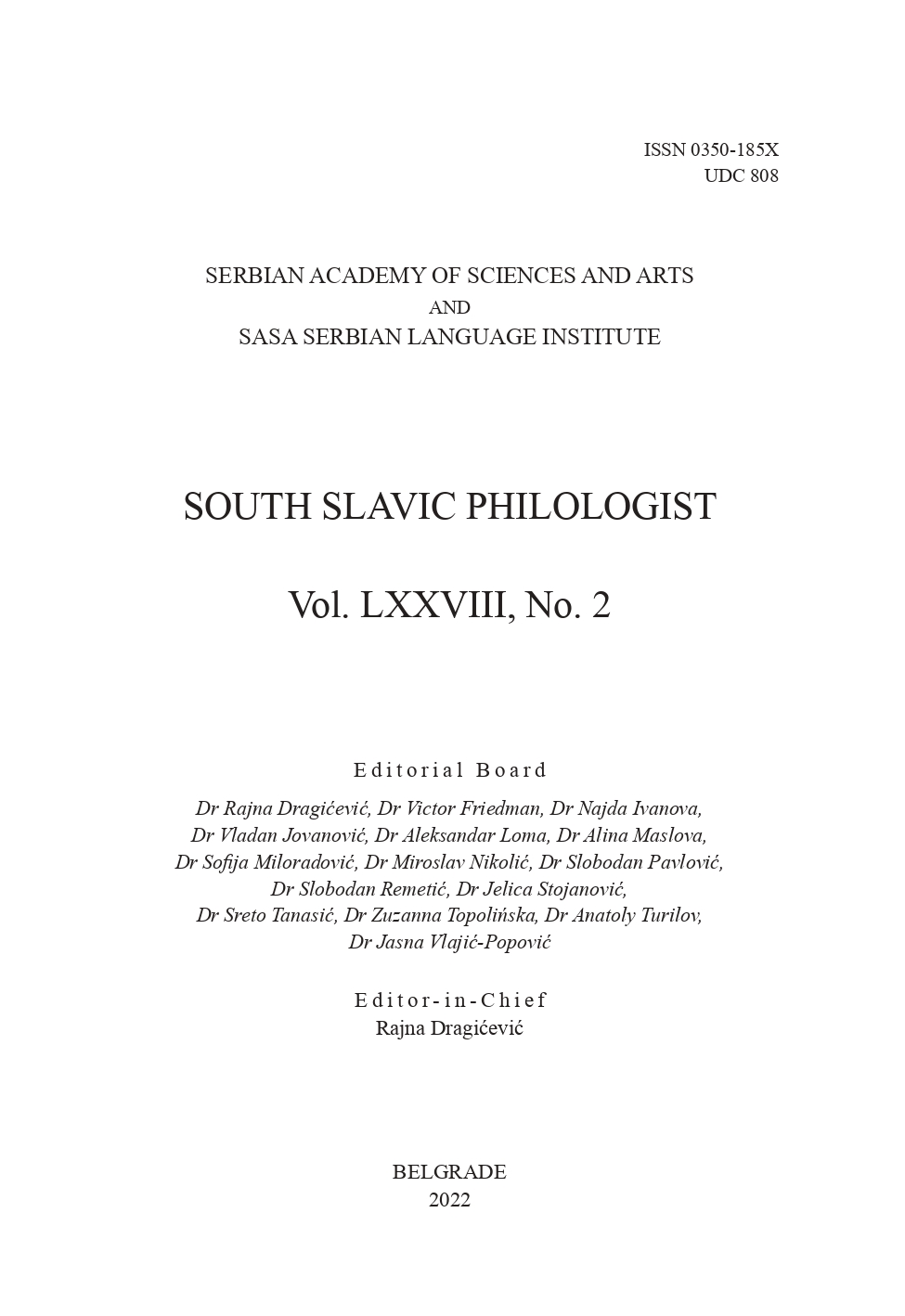О РЕЧНИЧКОЈ ОБРАДИ ЗАМЕНИЧКИХ РЕЧИ (НА ПРИМЕРУ ПОКАЗНИХ ЗАМЕНИЦА ОВОЛИКИ, ТОЛИКИ И ОНОЛИКИ
ON THE LEXICOGRAPHIC TREATMENT OF PRONOMINAL WORDS (EXEMPLIFIED BY SERBIAN DEMONSTRATIVE PRONOUNS OVOLIKI, TOLIKI AND ONOLIKI)
Author(s): Duška B. KlikovacSubject(s): Lexis, South Slavic Languages
Published by: Институт за српски језик Српске академије наука и уметности
Keywords: contemporary Serbian language; lexicography; pronominal words; pronouns ovoliki; toliki; onoliki; run-on entries; Dictionary of Serbo-Croatian Literary and Vernacular Language
Summary/Abstract: This paper examines the lexicographic treatment of Serbian pronominal words (pronouns, pronominal adverbs and pronominal particles) in general, with a particular focus on the treatment of demonstrative pronouns for quantity ovoliki [‘this big/ much/many’], toliki [‘so big/much/many’] and onoliki [‘that big/much/many’]. It is shown that, contrary to commonly held views, pronominal words can be semantically complex, and that their tripartite subsystems, characteristic of the Serbian language, could be appropriately treated as series entries (in the sense of the term as used by S. Landau). It is also shown that particular difficulties in defining the pronouns ovoliki, toliki, onoliki arise from their semantic “multidimensionality”, i.e., the capability of semantic diversification on the basis of more than one of their semantic components. The pertinent components are the following: (1) the notion of quantity, which comprises various cases, depending on the nature of the concept whose quantity is pointed to; (2) the kind of space in which the quantity is pointed to – which may be the physical space or some of the metaphorical spaces. In addition, (3) the component of comparison (in the case of the pronouns ovoliki and onoliki) or pointing (in the case of the pronouns toliki and onoliki) can bleach. Upon close examination of the treatment of the pronouns ovoliki and onoliki in the Dictionary of Serbo-Croatian Literary and Vernacular Language, the paper proposes alternative definitions, based on the semantic analysis of the demonstrative pronouns under examination, taking into account all dimensions of semantic diversification.
Journal: Јужнословенски филолог
- Issue Year: 78/2022
- Issue No: 2
- Page Range: 497-516
- Page Count: 20
- Language: Serbian

